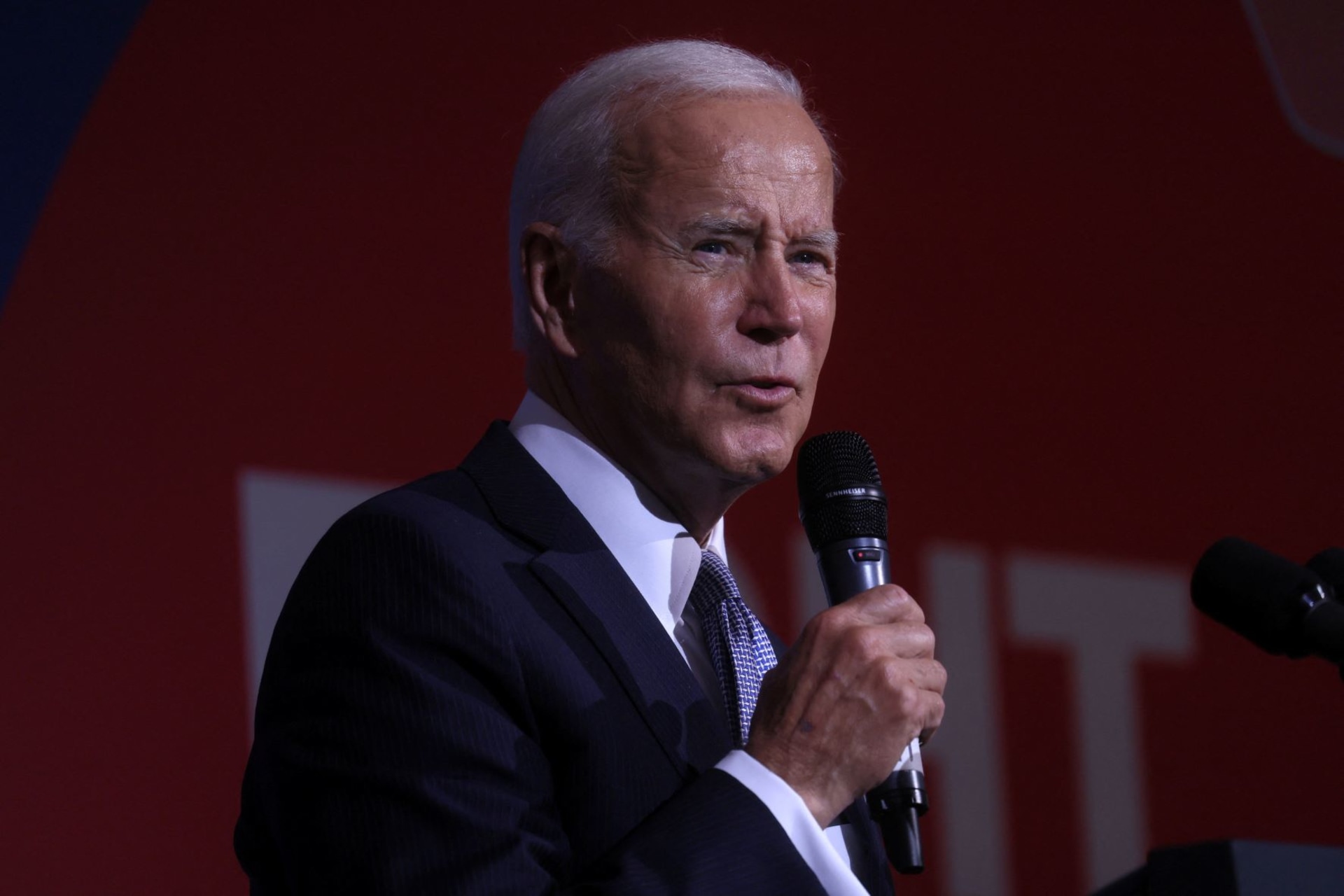While Pledging to Defend Taiwan from China, Biden Shifted on Taiwan Independence. Here’s Why That Matters.
President Biden’s comment on Taiwan independence is a break from his predecessors.

On Sunday evening, President Joe Biden made headlines when he asserted in a 60 Minutes interview that the United States would come to Taiwan’s defense if China were to launch an unprovoked attack. His embrace of strategic clarity, however, was not his most notable comment on Taiwan, since this was the fourth time that Biden has articulated such a commitment. Instead, the comment that will raise more alarms in Beijing was Biden’s statement that “Taiwan makes their own judgments about their independence…that’s their decision.” While this comment might seem innocuous, it would mark a significant shift in U.S. policy.
Since the United States severed diplomatic relations with Taiwan (formally the Republic of China) in 1979 and established formal diplomatic ties with the People’s Republic of China, U.S. policy has been to not support Taiwan independence. The State Department’s website currently notes, “we do not support Taiwan independence,” and Secretary of State Antony Blinken used the same language in his major speech outlining the Biden administration’s China policy.
In this regard, the Biden administration’s policy is the same as its predecessors. In the 1982 communique between the United States and China, the Reagan administration stated it had no intention of “pursuing a policy of ‘two Chinas’ or ‘one China, one Taiwan’” (i.e. it would not support Taiwan independence). In June 1998, President Bill Clinton went further in his “three nos” statement, articulating that the United States did not support two China’s or one China, one Taiwan, Taiwan independence, or Taiwan’s membership in international organizations that required statehood. When Taiwan’s President Chen Shui-bian flirted with a referendum that would change Taiwan’s status, the Bush administration expressed its “opposition” to such a move, with Secretary of State Colin Powell stating, “we do not support an independence movement in Taiwan.” President George W. Bush subsequently publicly rebuked Chen, warning, “We oppose any unilateral decision by either China or Taiwan to change the status quo. And the comments and actions made by the leader of Taiwan indicate that he may be willing to make decisions unilaterally to change the status quo, which we oppose.”
This decades-long, bipartisan non-support for Taiwan independence is rooted in a belief that if Taiwan were to declare independence it would likely prompt China to use force against the island. Beijing made this clear in its 2005 Anti-Secession Law, which states, “In the event that the ‘Taiwan independence’ secessionist forces should act under any name or by any means to cause the fact of Taiwan’s secession from China…the state shall employ non-peaceful means and other necessary measures to protect China’s sovereignty and territorial integrity.” Most American experts take China at its word, with a recent CSIS survey finding that 77 percent believe China would immediately invade Taiwan if it declared independence.
Indeed, U.S. officials have long believed that Washington needs to be firm in not supporting Taiwan independence in order to deter Taipei from taking actions that could provoke an attack. While many Taiwanese wish for the day when they can pursue de jure independence, they too understand that doing so will likely prompt an attack, which is why support for the status quo among Taiwanese remains strong. According to one long-running survey, more Taiwanese want to maintain the status quo indefinitely (28.6 percent) than any other option, while the second-most popular response is to maintain the status quo and decide at a later date (28.3 percent). Only five percent of respondents want to pursue independence as soon as possible.
Some will argue that President Biden merely misspoke – indeed, after the president’s interview, the White House clarified that U.S. policy had not changed. But officials in Beijing will see this as further evidence that the United States is walking away from its one-China policy. They will view this statement alongside Speaker Nancy Pelosi’s remark that it is “up to Taiwan to decide” whether to declare independence and conclude that there is a coordinated effort underway to shift U.S. policy. They will also note former secretary of state Mike Pompeo’s call for the United States to recognize Taiwan as an independent country and former secretary of defense Mark Esper’s recommendation to ditch the one-China policy and see such changes as enjoying bipartisan support.
If China concludes that the United States is supporting Taiwanese independence, it will respond by ramping up its already heightened pressure campaign against Taiwan. This would likely include sending more military aircraft and warships across the median line in the Taiwan Strait, levying additional sanctions on Taiwanese products, further restricting Taiwan’s participation in international organizations, and stripping away some of its remaining diplomatic partners. Taiwan would find itself less secure as a result.
President Biden’s embrace of strategic clarity is a welcome and overdue adjustment to U.S. policy, but a critical corollary to that shift should be clear messaging that such a commitment would not be operative if Taiwan were to provoke a crisis by unilaterally declaring independence. In addition, moving to strategic clarity can and should be done in a way that is consistent with the U.S. one-China policy. Last and most important, words must be matched with actions if they are to have the intended effect of deterring China and reassuring allies. A good deal remains to be done if stability in the Indo-Pacific is to be maintained.
